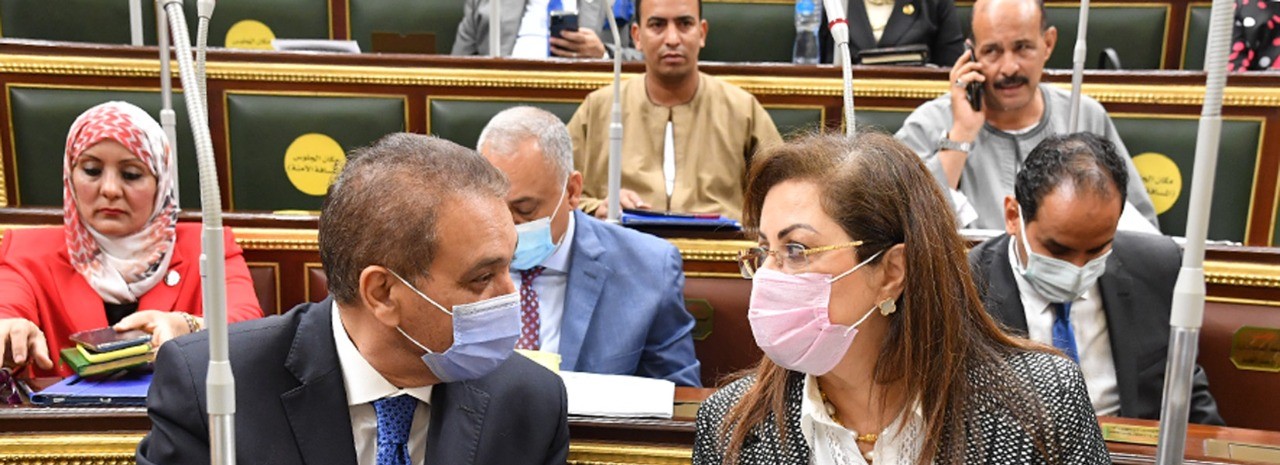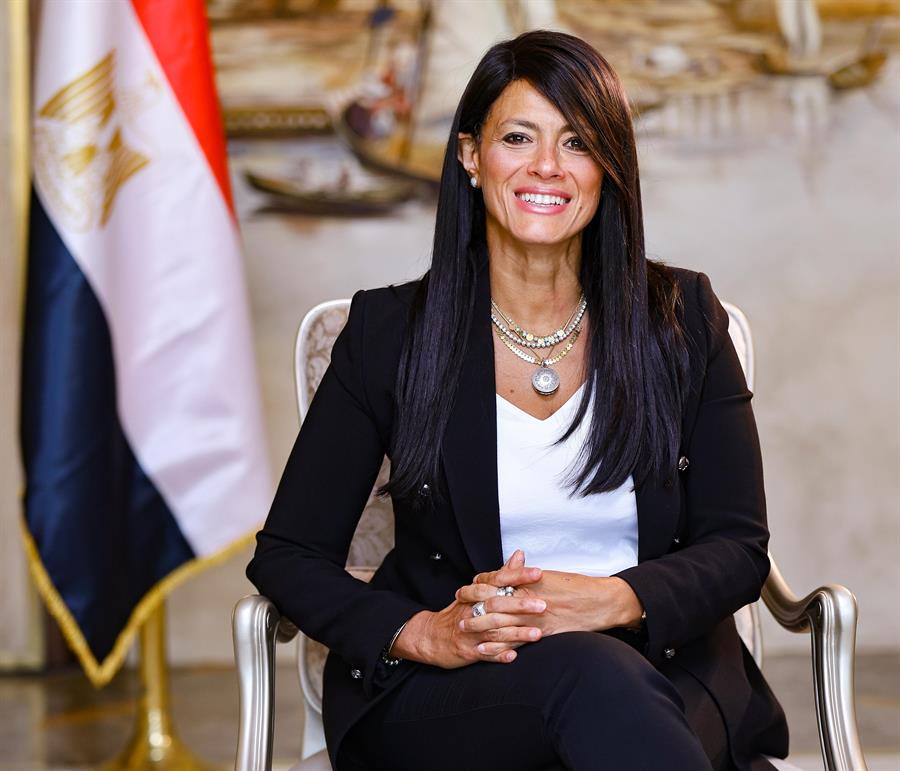Education is Egypt's main and national project: Planning Minister

14 June 2021
Hala El-Said, Minister of Planning and Economic Development, reviewed the targets of some sectors in the plan for the year 21/2022, during her discussion of the report of the Plan and Budget Committee on the draft economic and social development plan for the fiscal year 21/2022.
The fiscal year 21/2022 represents the fourth year of the medium-term sustainable development plan (2018/2019 - 2021/2022) before the Parliament.
El-Said dealt with the investments of the electricity sector, and El-Said explained that the plan includes total investments amounting to EGP 43 billion to implement a wide range of targeted projects during the year of the plan.
She also referred to the field of transport, explaining that the sector's total investments are estimated at EGP 245 billion in the year of the plan, with economic authorities about 65% of the total, and public investments as a whole constitute about 90% of the total investments.
El-Said added that in the field of roads, bridges, and land transport, the plan includes allocating about EGP 23 billion for projects of the Ministry of Transport, with a growth rate of 30%, to complete several strategic road projects.
"The investments directed to these activities have contributed to Egypt's rise in the international classification for the quality of roads by 85 places, to jump from 113th to 28th," El-Said explained.
El-Said referred to the activity of the Suez Canal, explaining that it is targeted to increase the volume of traffic crossing the canal and the revenues generated by it, by 5% of the net income.
Concerning the communications and information technology sector, El-Said explained that the plan included government investments of about EGP 18.6 billion, with a growth rate of 86%.
The plan also includes an initiative to "provide the necessary funds for 5 strategic projects in the telecommunications sector"; with funds amounting to EGP 8.7 billion.
On the housing sector and the services of water and sanitation, El-Said explained that the plan includes a total investment of about EGP 176 billion to implement many initiatives and projects, of which EGP 50 billion for the construction, and about EGP 21 billion for water projects, (an increase of 67%), and EGP 105 billion for sanitation projects (an increase of 260%).
Concerning the agriculture sector, El-Said pointed out that the horizontal expansion of programs, aimed at adding about 135 thousand acres in the 21/2022 plan, as well as 150,000 acres in the scope of the future of Egypt and the new Delta on the axis of Dabaa Western Sahara.
It is expected to increase the cropping area in the year 21/2022 to reach 17.5 million feddans.
Regarding the water resources and irrigation sector, El-Said pointed out that the government investments in the sector, amounting to about EGP 21 billion (with a growth rate of 158%), were aimed at implementing many projects, including the first major projects.
El-Said also pointed to the industrial sector investment, pointing out that the sector's development strategy focused on deepening local manufacturing expansion in many productions of intermediate inputs, and linkage with international supply chains, and the establishment of a wide range of projects in the framework of the replacement of imports strategy, in specific sectors.
The plan also aims to increase non-oil industrial exports by no less than 10% during the year 21/2022, while continuing to provide export support to companies.
El-Said said that education is Egypt's national project according to the directives of Egyptian President Abdel Fattah El-Sisi.
She added that investment in people is the government's goal and at the top of its program presented to the Parliament.
El-Said also said that about EGP 21 billion have been allocated to the offices of the general offices of the governorates and the General Diwan of the Ministry of Local Development in his plan for the year 21/2022.
“About 47% of them are related to road projects, environmental improvement services 20%, services to support the needs of local units 15%, electricity services 9%, and electricity services 9%,” She added.
El-Said pointed out that 43% of the total local investments were allocated to the governorates of the Upper, Canal, and Sinai regions.









